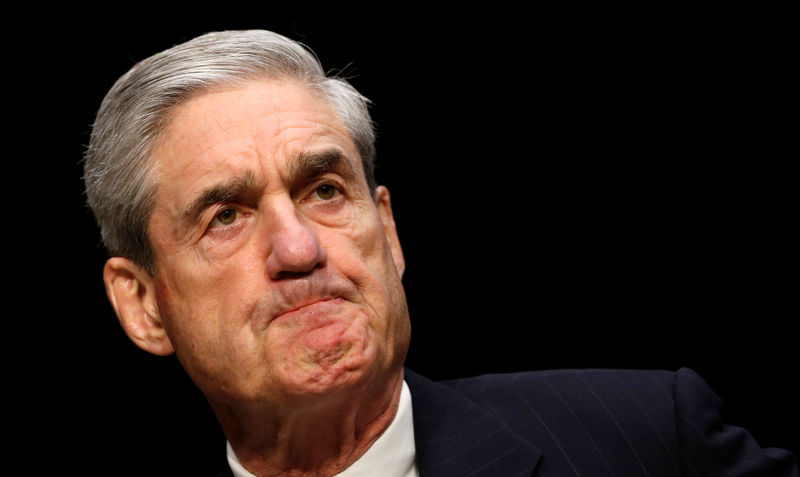By Ginger Gibson
WASHINGTON (Reuters) - U.S. Special Counsel Robert Mueller's 448-page report released on Thursday detailed more than just Oval Office arguments and Trump Tower meetings.
It also revealed that Trump's staff and associates frequently ignored the president - disregarding his orders and hoping he just wouldn't ask again.
FIRING MUELLER
Trump called White House Chief Counsel Don McGahn twice and told him to tell Deputy Attorney General Rod Rosenstein that Mueller should be removed.
"Call Rod, tell Rod that Mueller has conflicts and can’t be the Special Counsel," McGahn recalled Trump telling him.
But McGahn didn't do it.
"To end the conversation with the President, McGahn left the President with the impression that McGahn would call Rosenstein," Mueller wrote in his report. "McGahn recalled that he had already said no to the President’s request and he was worn down, so he just wanted to get off the phone."
MESSAGE TO SESSIONS
Trump frequently attempted to use staff and associates to deliver messages. But frequently, his attempts to send messages via a third party were ignored.
On June 19, 2017, Trump met in the Oval Office with his former campaign manager Corey Lewandowski. Trump told Lewandowski to deliver a message to then Attorney General Jeff Sessions that he wanted the Mueller investigation limited to just potential interference in future elections.
Lewandowski told Trump he would handle it, but instead he asked White House official Rick Dearborn to deliver the message.
"(Dearborn) recalled later telling Lewandowski that he had handled the situation, but he did not actually follow through with delivering the message to Sessions," Mueller wrote.
'PART OF THE TEAM'
On Feb. 14, 2017, Trump had lunch with then-New Jersey Governor Chris Christie. During the lunch, the president asked Christie if he could deliver a message to then-FBI Director James Comey.
Trump wanted Christie to tell Comey that the president "really like(s) him. Tell him he's part of the team," the governor later told Mueller.
A month later, Trump fired Comey.
"Christie had no intention of complying with the president’s request that he contact Comey," Mueller wrote. "He thought the president’s request was 'nonsensical' and Christie did not want to put Comey in the position of having to receive such a phone call. Christie thought it would have been uncomfortable to pass on that message."
'UNCOMFORTABLE WITH THE TASK'
Long before Sessions resigned, Trump began searching for a new attorney general.
In July 2017, Associate Attorney General Rachel Brand came to Trump's attention and he asked his then White House Staff Secretary Rob Porter to contact Brand to see if she was interested in becoming attorney general.
"Later, the president asked Porter a few times in passing whether he had spoken to Brand, but Porter did not reach out to her because he was uncomfortable with the task," Mueller wrote.
Porter ignored the president because he was concerned the inquiry was an attempt by Trump to fire Mueller, the special counsel's office surmised.

"Porter did not contact Brand because he was sensitive to the implications of that action and did not want to be involved in a chain of events associated with an effort to end the investigation or fire the Special Counsel," the report said.